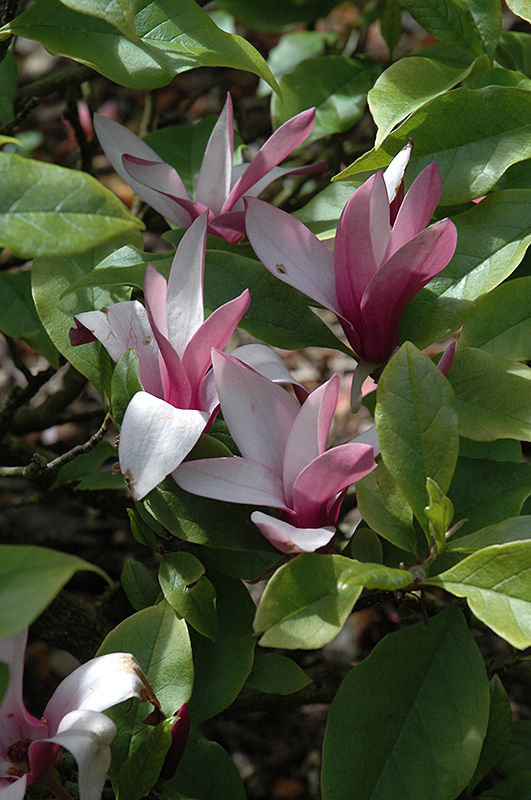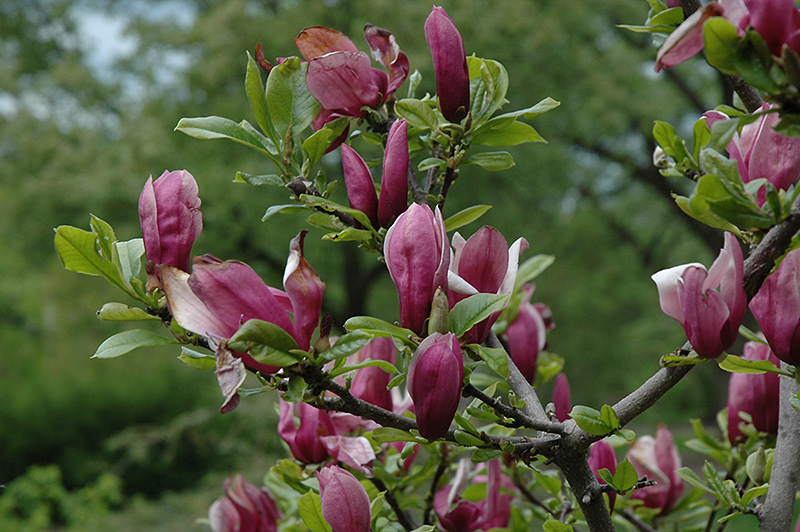Height: 15 feet
Spread: 12 feet
Sunlight:
![]()
![]()
Hardiness Zone: 5
Description:
A choice garden shrub for showy spring bloom, featuring rich purple flowers with very dark red tepals, puts on quite a long flowering performance, flowers well when young; makes a nice compact shrub the rest of the year
Ornamental Features
Lily Magnolia is blanketed in stunning fragrant purple cup-shaped flowers with a dark red reverse at the ends of the branches from early to mid spring before the leaves. It has dark green deciduous foliage. The large pointy leaves do not develop any appreciable fall colour.
Landscape Attributes
Lily Magnolia is a multi-stemmed deciduous shrub with a more or less rounded form. Its relatively coarse texture can be used to stand it apart from other landscape plants with finer foliage.
This is a relatively low maintenance shrub, and should only be pruned after flowering to avoid removing any of the current season's flowers. Deer don't particularly care for this plant and will usually leave it alone in favor of tastier treats. It has no significant negative characteristics.
Lily Magnolia is recommended for the following landscape applications;
- Accent
- Mass Planting
- Hedges/Screening
- General Garden Use
Planting & Growing
Lily Magnolia will grow to be about 15 feet tall at maturity, with a spread of 12 feet. It has a low canopy, and is suitable for planting under power lines. It grows at a slow rate, and under ideal conditions can be expected to live for 40 years or more.
This shrub does best in full sun to partial shade. It requires an evenly moist well-drained soil for optimal growth, but will die in standing water. It is not particular as to soil type, but has a definite preference for acidic soils. It is quite intolerant of urban pollution, therefore inner city or urban streetside plantings are best avoided. Consider applying a thick mulch around the root zone in winter to protect it in exposed locations or colder microclimates. This species is not originally from North America.








